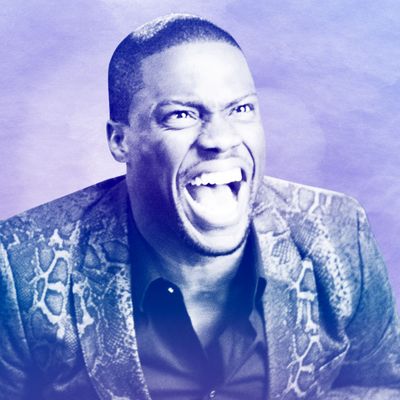
In modern romantic comedies, nonwhite love comes as a package deal. Michael Ealy and Taraji P. Henson can go through the motions of a trademark rom-com romance — career woman and idealistic man fall in love, and end up in an L.A. penthouse living happily ever after — but only if their romance comes neatly packaged alongside a handful of other couples.
That’s what happens in Think Like a Man, where we get Ealy and Henson, but also get Meagan Good and Romany Malco, Gabrielle Union and Jerry Ferrara, Regina Hall and Terrence J, and — at the last minute — Taraji P. Henson again, this time with Morris Chestnut. The 2012 comedy, the highest-grossing black rom-com of recent memory, employed a cast of dozens of familiar faces, sparking a miniature boom for the ensemble-style formula that The Best Man perfected 13 years earlier. In the modern romantic comedy, two single black people rarely just meet. Instead, one group of black friends meets another group of black friends, and somewhere in there Kevin Hart shows up to make a few jokes.
Ensembles like this run on inoffensive jokes and dreamy dates, so the love stories are easy to buy into. The skill comes from making sure no subplot gets swallowed up by the others. The Best Man, the best of these movies, refined the art of juggling heavyweights. It takes a delicate balance to have Nia Long, Sanaa Lathan, Taye Diggs, and Morris Chestnut all in the same movie, and give each of them enough to do, but that movie managed to create an ensemble full of characters who all feel both authentic and specific. The Best Man works because it feels like a family reunion, and its 2014 sequel The Best Man Holiday doubles down on this, layering nostalgia into every scene. It’s not alone; sometimes it feels like every modern black rom-com is nostalgic for The Best Man.
Including Holiday, the past seven years have given us seven black ensemble rom-coms: Besides 2010’s Our Family Wedding, which focused on an interracial couple, we’ve seen Jumping the Broom, About Last Night, two Think Like a Man movies, and Peeples. White people get these kinds of movies, too — He’s Just Not That Into You, That Awkward Moment, Garry Marshall’s holiday movies — but they also have character-driven narratives like Her, Silver Linings Playbook, and Obvious Child. They’re not constrained by the formula. Black actors, particularly genre’s black heavyweights like Meagan Good or Paula Patton, don’t have this range of options: It’s either a Kevin Hart ensemble, or Baggage Claim.
The ensemble style has financial benefits: There’s something for everyone in a movie with a dozen stars. (And thanks to Hollywood’s racial wage gap, black actors often come cheaper than white ones.) But there’s a downside to coasting on these large casts. Every character has to be sketched in shorthand — in the case of Think Like a Man, they’re literally introduced as “The Mama’s Boy,” “The Player,” etc. — which leaves little room for complex characters, or any subversion of gender expectations. (The need to allow enough screen time for Hart, who’s never at the center of the romantic narratives, compounds the problem.) It’s easy to laugh at these kinds of universal archetypes; it’s harder to present a nuanced black man with both an emotional life and a sense of humor. These ensemble movies flatten everyone’s characters, limiting our conception of black sexuality in what often turns out to be a pale imitation of The Best Man’s group fun.
It’s not only men who are slighted by these couplehood supercuts. Even when black actors have to play broad stereotypes, they still get to occupy the center of these films: Peeples was a vehicle for Craig Robinson; Jumping the Broom cared more about Laz Alonso than Paula Patton; the Best Man movies focus on groomsmen, not bridesmaids; and the Think Like a Man franchise is drive by Steve Harvey’s retrograde gender politics. Most of the women in these movies are defined by their roles as wives, girlfriends, or mothers; they lack the full social lives seen in movies like Waiting to Exhale. Black women auteurs can feel that absence: “It’s so important to show that black women do have friends,” Issa Rae told Vanity Fair last year. “We’re not all just fighting and punching each other and cursing each other out and ending up on the Shade Room together.”
Of the recent black ensemble rom-coms, the foursome in About Last Night — comprised of Kevin Hart, Michael Ealy, Regina Hall, and Joy Bryant — gets closest at focusing on one single love story. Hart’s only there for punch lines, and his comedic energy is tightly tied to the central Bryant-Ealy romance; the movie’s tighter focus doesn’t allow him to steal any of their scenes. Still, it’s a rarity to see one single nonwhite couple fall in love in a romantic comedy. In this time of new romantic comedies, it’s a shame that the most popular black stories are told in a structure that strips black romance of any cultural specifics and contorts it to a handful of easily digestible stereotypes.



